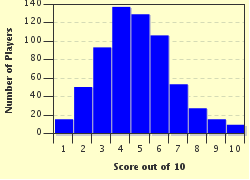Quiz Answer Key and Fun Facts
1. There's a phrase frequently uttered in various Parliaments around the world. I have often wondered about its origins, and therefore proper spelling. Which of these is generally considered to be the correct spelling of that phrase, based on its original meaning?
2. I've often wondered about the difference between "preventative" and "preventive". Noting that while some grammar experts disagree, do the vast majority of published dictionaries treat the words as having the same meaning?
3. I have heard the words 'Torah' and 'Talmud' used and know that they both have something to do with Judaism. But which is the word that can be specifically used to describe the first five books of the Hebrew Bible?
4. Here's one that I'm sure everyone learns early at school (but often forgets if you're like me!). What's the major difference between a solar system and galaxy?
5. I often get the words 'practice' and 'practise' confused. American English uses them interchangeably, but what is the rule in UK and Australian English usage?
6. Is a ladybug the same as a ladybird?
7. With apologies to anyone who lives in either, I have to confess that North and South Dakota have always confused me. Which one is geographically the largest by area: North or South?
8. Rachel and Leah were sisters who were involved with Jacob in the Old Testament (Genesis, to be exact). I always get confused with who is who, though. Whom did Jacob marry first?
9. When people apply for jobs, they are often asked to supply either a résumé or a Curriculum Vitae. Are these considered to be the same thing (that is, can the phrases be used interchangeably?)
10. Bearing in mind that they are both mythological creatures, what is one major (generally) agreed difference between pixies and fairies?
Source: Author
timence
This quiz was reviewed by FunTrivia editor
Pagiedamon before going online.
Any errors found in FunTrivia content are routinely corrected through our feedback system.


